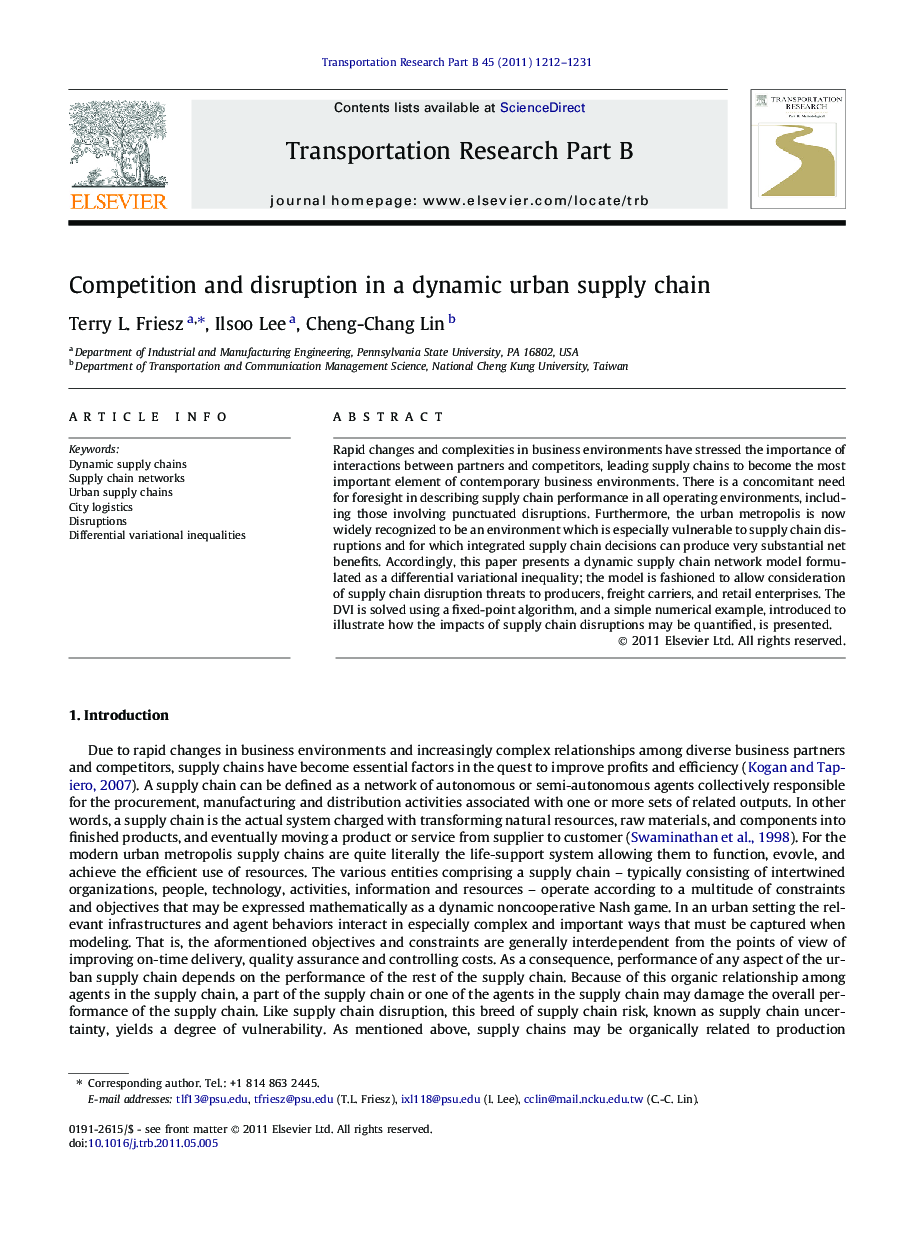| Article ID | Journal | Published Year | Pages | File Type |
|---|---|---|---|---|
| 1132401 | Transportation Research Part B: Methodological | 2011 | 20 Pages |
Rapid changes and complexities in business environments have stressed the importance of interactions between partners and competitors, leading supply chains to become the most important element of contemporary business environments. There is a concomitant need for foresight in describing supply chain performance in all operating environments, including those involving punctuated disruptions. Furthermore, the urban metropolis is now widely recognized to be an environment which is especially vulnerable to supply chain disruptions and for which integrated supply chain decisions can produce very substantial net benefits. Accordingly, this paper presents a dynamic supply chain network model formulated as a differential variational inequality; the model is fashioned to allow consideration of supply chain disruption threats to producers, freight carriers, and retail enterprises. The DVI is solved using a fixed-point algorithm, and a simple numerical example, introduced to illustrate how the impacts of supply chain disruptions may be quantified, is presented.
► We develop a simple, computable mathematical formulation of suppliers’, producers’ and retailers’ activities typical of a complex urban supply chain. ► The formalism of differential variational inequalities is employed for both qualitative and numerical analyses. ► Using hypothetical examples, we illustrate how the impacts of supply chain disruption would be studied in an industrial setting.► Our examples establish that a computational approach to disruption analysis is indeed practical.
